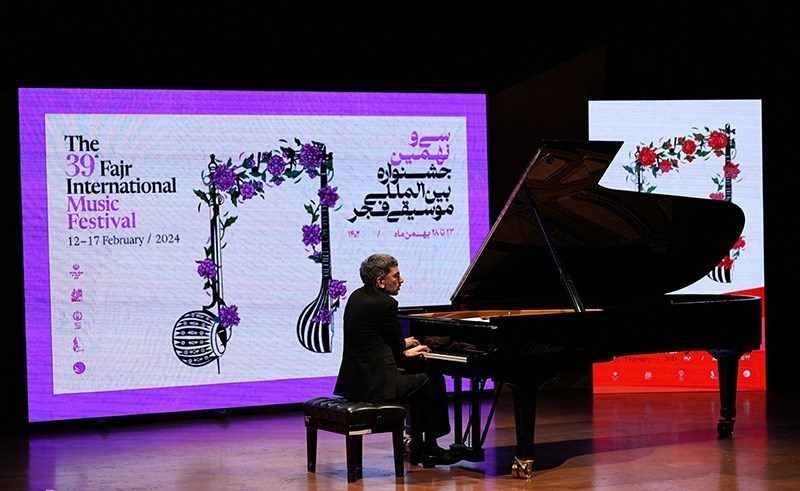
Hayk Melikyan, known as a piano prodigy, captivated the audience at Roudaki Hall in Iran with a compelling performance that reflected a profound understanding of modern music.
On February 12, 2024, the Fajr Music Festival at Roudaki Hall welcomed a pianist often referred to as a piano prodigy. Hayk Melikyan, an Armenian pianist renowned among professionals for his expertise in performing contemporary and modern classical works, has made significant efforts throughout his career to promote contemporary music. His appearance at this year’s festival offered Iranian audiences the rare opportunity to witness his artistry up close. The repertoire he prepared for this concert consisted of works by Armenian composers.
The first striking aspect of the evening was the enthusiastic turnout—particularly from the Armenian community, who, with great excitement and anticipation, filled nearly every seat in the hall. The concert began right on time, and after just a few pieces, it became clear why Melikyan is so deserving of the title “piano prodigy.”
From his playing style to the emotional depth conveyed in each piece, it was evident that he possesses a profound understanding of contemporary music—something that, unfortunately, many other performers in this genre often lack. This deep insight was especially noticeable in the second piece, where he maintained a recurring four-note motif throughout the composition. Accompanied by atonal textures, this created a subtle yet persistent sense of suspension for the listener.
It’s important to note that playing an instrument isn’t just about hitting the right notes—it’s about grasping the composer’s intent, emotion, and message. The emotional interpretation required for the pieces in Melikyan’s program would challenge any pianist, yet he navigated them with remarkable skill.
The fourth piece, infused with an Armenian and Eastern flavor, showcased Melikyan’s mature grasp not only of contemporary musical language but also of the cultural roots embedded in the music of his homeland.
Perhaps the most captivating moment of the recital came with the fifth piece, which began with the pianist producing sound effects directly from the piano strings by hand. Through varied strikes on specific points inside the piano, he created an immersive and astonishing soundscape—one quite uncharacteristic of the traditional piano sound. At times, Melikyan transformed into a kind of percussionist, and near the end of the piece, he even vocalized along with the melody, as indicated in the score. Such experimental techniques are common and accepted in the world of modern and contemporary composers.
Anyone familiar with this field knows that modern composers often seek to break away from the strict conventions of classical eras, giving rise to new forms and innovative expressions in both composition and performance.
The final piece performed by Hayk Melikyan was by Arno Babajanyan—one of the most beloved and renowned composers among the Armenian people. A simple and sweet composition, it holds a special place in the hearts of many Armenians.
Melikyan’s presence in Iran sparked excitement—especially among enthusiasts of contemporary classical music and all its distinctive qualities.
Interview By Farid Parish
